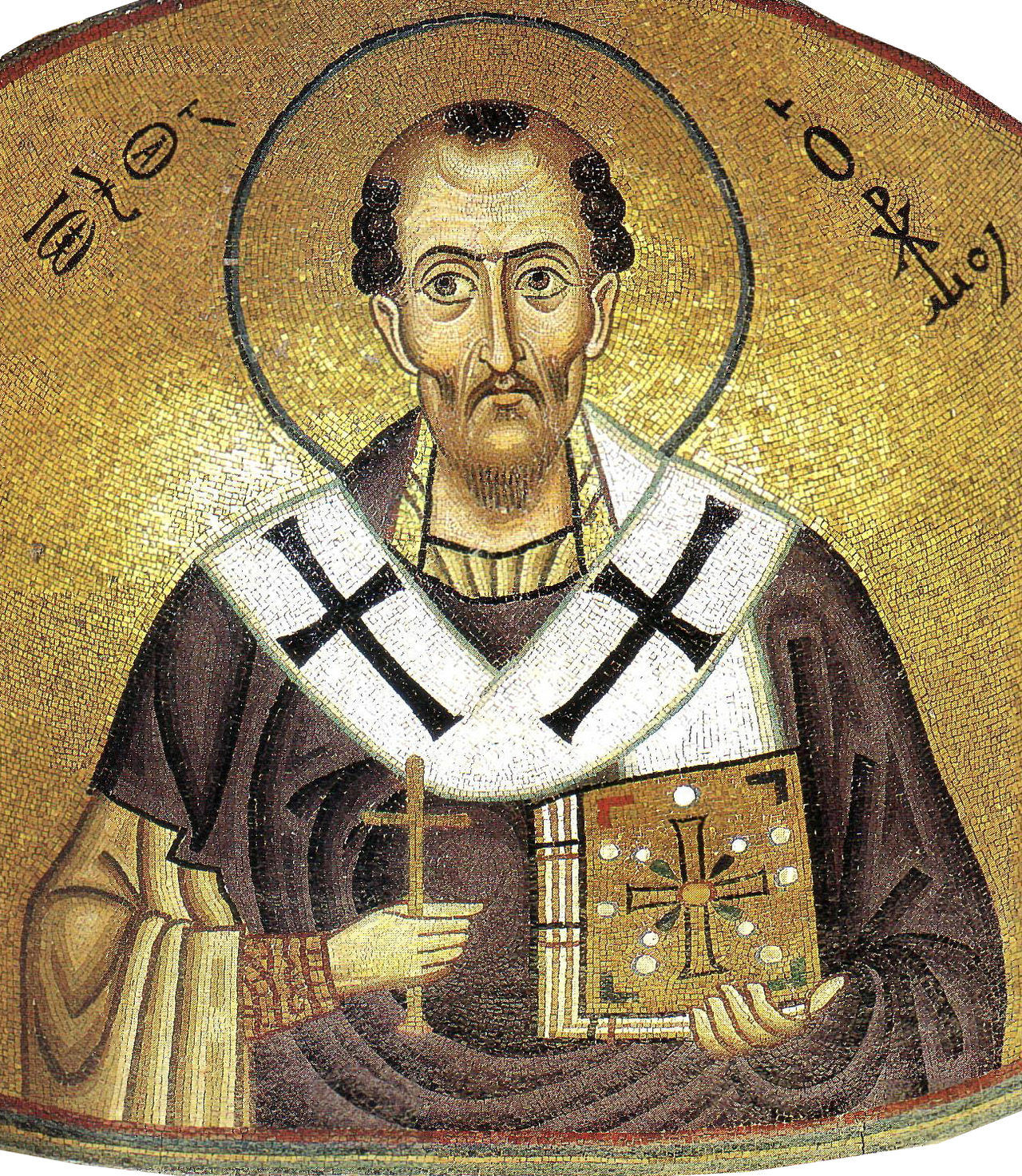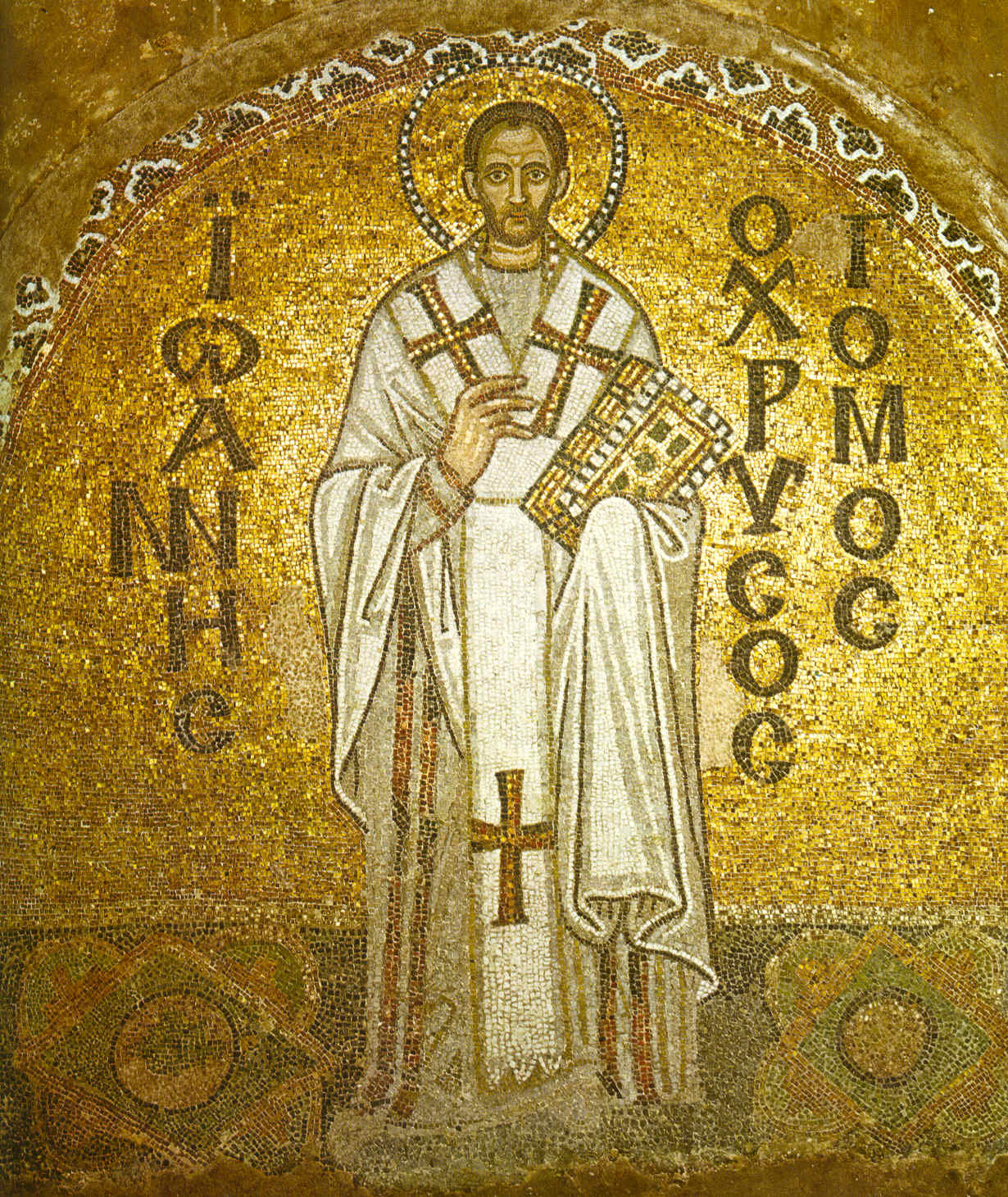
Catholic Saints
Saint John Chrysostom (347–407 AD), dubbed "Golden-Mouthed" for his unparalleled eloquence, was a fourth-century Archbishop of Constantinople and a Doctor of the Church. Born in Antioch, he rose from a hermit’s life to become a preacher of extraordinary power, appointed archbishop in 397 AD. His fearless critiques of imperial excess and clerical corruption led to his exile in 403 AD, and he died in 407 AD after enduring harsh banishment. Celebrated on September 13, his homilies and the Divine Liturgy bearing his name remain pillars of Christian tradition, earning him recognition as a Doctor of the Church in 1568 by Pope Pius V.
His feast day is celebrated on September 13.
Doctor of the Church
Born in 347 AD in Antioch, John Chrysostom emerged as one of the early Church’s most eloquent preachers and enduring theological voices, his life a testament to the power of words and the cost of conviction.
John was born in 347 AD in Antioch, a thriving city in Roman Syria, to a prominent Christian family. His father, Secundus, a high-ranking military officer, died shortly after John’s birth, leaving his mother, Anthusa, a widow at twenty. She devoted herself to his upbringing, securing him an education under Libanius, the era’s foremost pagan rhetorician, who recognized John’s exceptional talent and reportedly wished him as a successor.
Baptized in 368 AD by Bishop Meletius, John turned from secular ambitions to Christian service. He embraced asceticism, living as a hermit in the mountains near Antioch from 373 to 379 AD, where he memorized Scripture and honed his spiritual discipline—practices that later fueled his preaching. Returning to Antioch, he was ordained a deacon in 381 AD and a priest in 386 AD, beginning a ministry marked by rhetorical brilliance.
As a priest in Antioch, John’s sermons captivated audiences, earning him the moniker “Chrysostom” (Golden-Mouthed). Preaching in the cathedral of Antioch, he delivered homilies on Scripture—over 600 survive—covering books like Genesis, Matthew, and Romans. His style blended practical exegesis with vivid imagery, addressing both the spiritual needs of the laity and the moral failings of society.
John’s oratory tackled issues like wealth disparity, urging the rich to aid the poor, and denounced vices like theatergoing and gluttony. His influence grew amid Antioch’s unrest, notably during the Riot of the Statues in 387 AD, when his Lenten sermons calmed the city after citizens defaced imperial statues, averting harsher reprisals from Emperor Theodosius I.
In 397 AD, John was forcibly taken from Antioch and consecrated Archbishop of Constantinople, the imperial capital, at the behest of Emperor Arcadius and his minister Eutropius. Reluctant to leave his ascetic life, he accepted the role under protest. As archbishop, he reformed the clergy—curtailing lavish lifestyles—and redirected church funds to support hospitals and the poor, earning both admiration and enmity.
His sermons in the Hagia Sophia continued to shine, but his critiques of the imperial court, especially Empress Eudoxia’s extravagance, sowed seeds of conflict. John’s pastoral care extended to missionary efforts, sending clergy to evangelize the Goths, and he oversaw the construction of churches, cementing his role as a shepherd in a city rife with political intrigue.
John upheld Nicene orthodoxy against lingering Ariansism and other heresies, using his pulpit to reinforce the Council of Nicaea’s teachings on Christ’s divinity. His homilies on John’s Gospel and Pauline epistles countered theological errors with clarity, emphasizing the unity of Christ’s nature and the moral demands of faith.
His writings also addressed practical theology—on prayer, fasting, and almsgiving—shaping Christian ethics. Though not embroiled in major councils like Ephesus, his influence bolstered the Church’s doctrinal foundation, earning him posthumous recognition as a Doctor of the Church in 1568 by Pope Pius V.
John’s outspokenness led to his downfall. In 403 AD, Empress Eudoxia and Bishop Theophilus of Alexandria, resentful of his reforms and moral critiques, orchestrated his deposition at the Synod of the Oak, a kangaroo court near Chalcedon. Exiled to Cucusus in Armenia, he endured harsh conditions—extreme weather and isolation—yet continued writing letters of encouragement to his supporters.
Recalled briefly due to public outcry, he was exiled again in 404 AD after further sermons incensed Eudoxia. Ordered to Pityus on the Black Sea in 407 AD, John died en route on September 14 near Comana, his last words reportedly “Glory to God for all things.” His relics were later returned to Constantinople in 438 AD by Emperor Theodosius II.
John’s death did not silence his voice. His homilies, numbering over 800, were copied and circulated widely, influencing medieval preachers and theologians like Thomas Aquinas. The Divine Liturgy of Saint John Chrysostom, though likely refined by later hands, became the standard Eucharistic rite in the Eastern Orthodox Church, a testament to his liturgical impact.
Celebrated on September 13, John’s legacy blends eloquence with compassion. His writings on social justice, clerical reform, and personal piety continue to resonate, offering a model of preaching that marries intellect with heart. His exile and martyrdom underscore his unwavering commitment to truth, a beacon for Christians across centuries.
“Prayer is the light of the soul, giving us true knowledge of God.”
Born in Antioch.
Educated in rhetoric and law in Antioch.
Began preaching in Antioch.
Ordained a priest.
Became Archbishop of Constantinople.
Known for eloquent preaching and reforms.
Banished due to conflicts with authorities.
Exiled from Constantinople.
Died in exile.
Left a lasting impact as a Doctor of the Church.

“Do not be ashamed to enter again into the Church. Be ashamed when you sin. Do not be ashamed when you repent.”
Saint John Chrysostom Quotes
“The love of husband and wife is the force that welds society together.”
“Riches are not forbidden, but the pride of them is.”
“Fasting is the change of every part of our life, because the sacrifice of the fast is not the abstinence but the distancing from sins.”
“Helping a person in need is good in itself. But the degree of goodness is hugely affected by the attitude with which it is done.”
“The road to Hell is paved with the bones of priests and monks, and the skulls of bishops are the lamp posts that light the path.”
“No matter how just your words may be, you ruin everything when you speak with anger.”